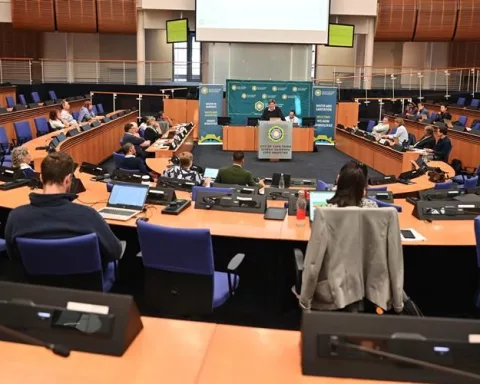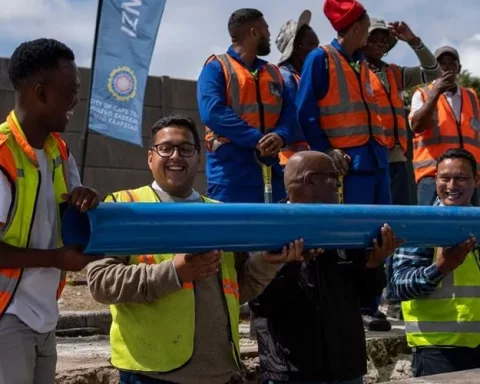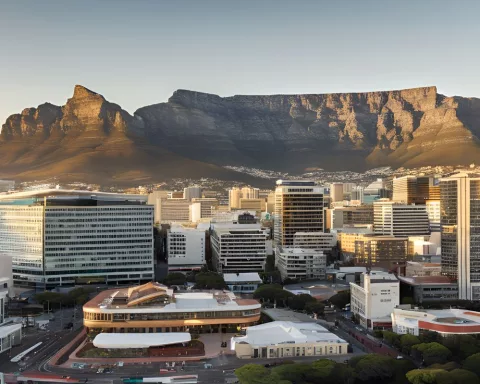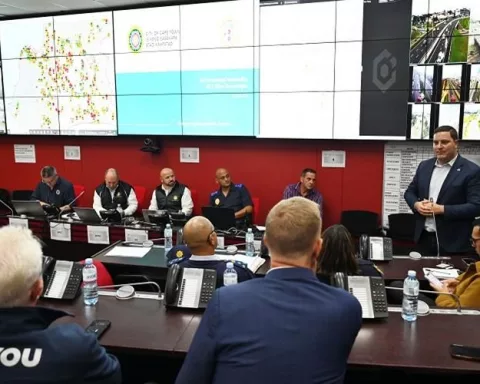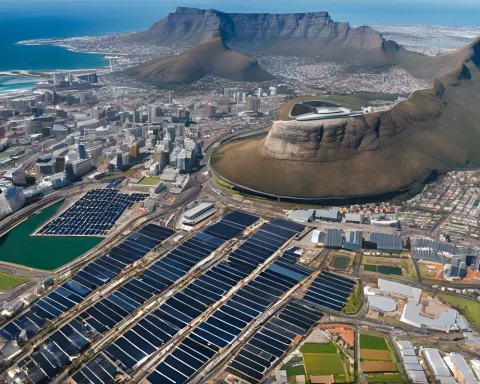Cape Town’s Energy, Water and Waste (EWW) Forum brings together the city and local businesses to work towards responsible resource management and sustainability. The forum focuses on innovative solutions to tackle organic waste management challenges and landfill diversion, with the goal of reducing organic waste in landfills by 50% by 2022 and achieving 100% organic waste diversion by 2027. The forum demonstrates the power of shared knowledge and collaboration in driving sustainable change and serves as an inspiring model for cities worldwide.
What is Cape Town’s Energy, Water and Waste Forum?
Cape Town’s Energy, Water and Waste (EWW) Forum is a platform for the city and local businesses to work together towards responsible resource management and sustainability. The forum’s focus is on innovative solutions to tackle organic waste management challenges and landfill diversion. It aims to achieve a 50% reduction in organic waste directed to landfills by 2022 and 100% organic waste diversion by 2027 through shared expertise and cooperative action.
The Energy, Water and Waste (EWW) Forum in the City of Cape Town recently took bold strides towards responsible resources management and sustainability. This Forum’s focus was on tackling Organic Waste Management’s emerging challenges and opportunities, as well as landfill diversion. This meeting was a seminal moment in the City’s quest to meet the ambitious organic waste diversion objectives established by the Western Cape Government.
Remarkable Targets and Innovative Solutions
The targets set, aspire to decrease organic waste directed to landfills by 50% by 2022, and to attain a 100% organic waste diversion by 2027. This vision has driven a sense of urgency into the discussions held at the forum. Participants have risen to the challenge, using their creativity to create cutting-edge solutions and sharing their best practices, emphasizing the potential for teamwork amid pressing environmental problems.
Government officials offered crucial guidance during the forum. They clarified the regulatory frameworks that govern waste management, smoothing the way for companies navigating through evolving waste management regulations. This crucial government participation in the forum underscored the harmonious relationship developing between public and private sectors in driving sustainable change.
Greencape’s Waste Sector Desk Coordinator’s Insights
The forum was further enriched by the insightful presentation from Greencape’s waste sector desk coordinator. The talk spotlighted several viable options available to companies aiming to reduce their organic waste footprints. The valuable insights illuminated practical strategies and technologies that could easily be incorporated into existing operations to amplify waste diversion efforts.
Real-World Examples: Industry Leaders Share Their Success Stories
The value of real-world examples was underscored by case studies from industry leaders such as Shoprite, Woolworths, and V&A Waterfront. These narratives provided priceless insights into solving challenges, leading to progressively successful waste management practices in commercial settings. Serving as motivational examples, these case studies showed that ambitious, tangible results are achievable in the mission to eliminate organic waste from landfills.
Updates from the City’s Water and Sanitation, and Energy Directorates
In addition to these presentations, representatives from the City’s Water and Sanitation, and Energy Directorates provided updates on their services. The Energy Directorate highlighted the City’s recently introduced Energy Strategy and the innovative online application portal for the approval of solar PV and/or battery systems. The Water and Sanitation report drew attention to the city’s dam levels and water usage, and the long-term risks to water security posed by climate change and population growth. The forum also furnished a comprehensive overview of the Water Strategy.
Collective Commitment towards a Sustainable Future
According to Alderman Grant Twigg, Mayoral Committee Member for Urban Waste Management, the forum encapsulated the joint commitment of the City of Cape Town and local businesses to foster a culture of sustainability and responsible resource management. Through the application of shared expertise and cooperative action, stakeholders reaffirmed their pledge to drive palpable progress towards a greener, more resilient future for Cape Town and its residents.
For more information on the City of Cape Town’s EWW Forum and its initiatives, visit their official website. Also, details on how to join the forum can be found on the provided link.
The Power of Shared Knowledge and Collaboration
This meeting underscored the potency of shared knowledge, collaboration, and a mutual commitment to sustainability. It showed that when leaders from different sectors unite, they can accomplish significant strides towards a more resilient, greener future. This dynamic approach serves as an inspiring model for how cities worldwide can tackle their environmental challenges through collective action.
What are the goals of Cape Town’s Energy, Water and Waste Forum?
The forum aims to reduce organic waste in landfills by 50% by 2022 and achieve 100% organic waste diversion by 2027 through innovative solutions and shared expertise between the city and local businesses.
How does the forum encourage responsible resource management and sustainability?
The forum brings together government officials and industry leaders to share best practices, present case studies, and offer guidance on regulatory frameworks. It also highlights viable options for companies to reduce their organic waste footprints and updates on the city’s Water and Sanitation and Energy Directorates.
What is the significance of the Energy Directorate’s online application portal?
The online application portal provides an easy and innovative way for individuals and businesses to get approval for their solar PV and/or battery systems, thus promoting the use of renewable energy sources.
How are climate change and population growth affecting Cape Town’s water security?
The Water and Sanitation report highlighted the long-term risks to water security posed by climate change and population growth and drew attention to the city’s dam levels and water usage.
What is the role of shared knowledge and collaboration in driving sustainable change?
The meeting underscored the potency of shared knowledge, collaboration, and a mutual commitment to sustainability. It demonstrated that when leaders from different sectors unite, they can accomplish significant strides towards a more resilient, greener future.
How can interested individuals and businesses join the forum?
Details on how to join the forum can be found on its official website, which also provides more information on its initiatives and goals.



